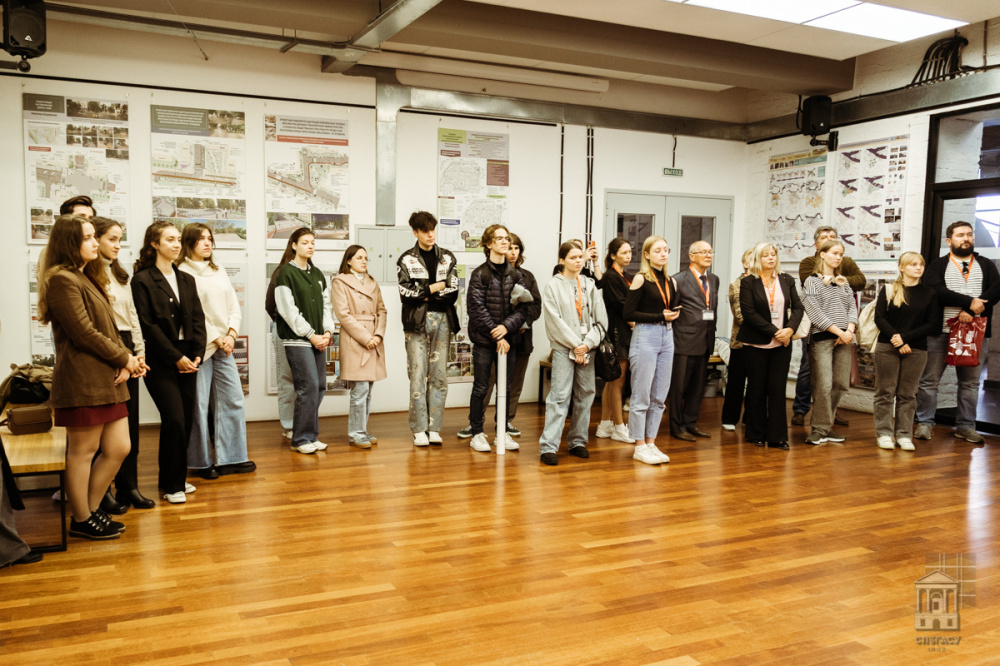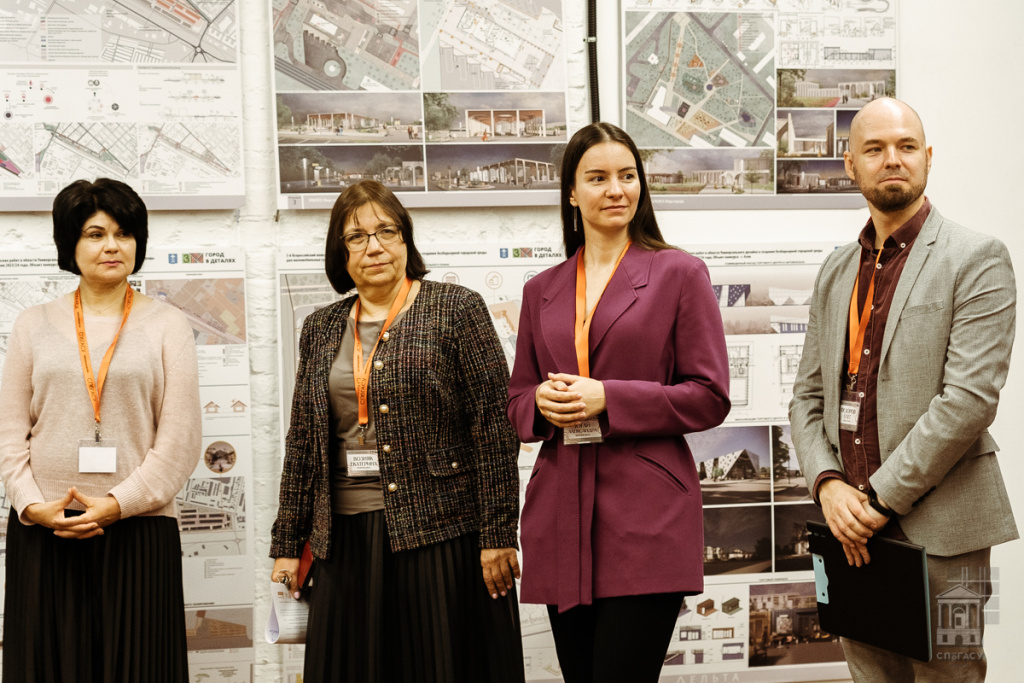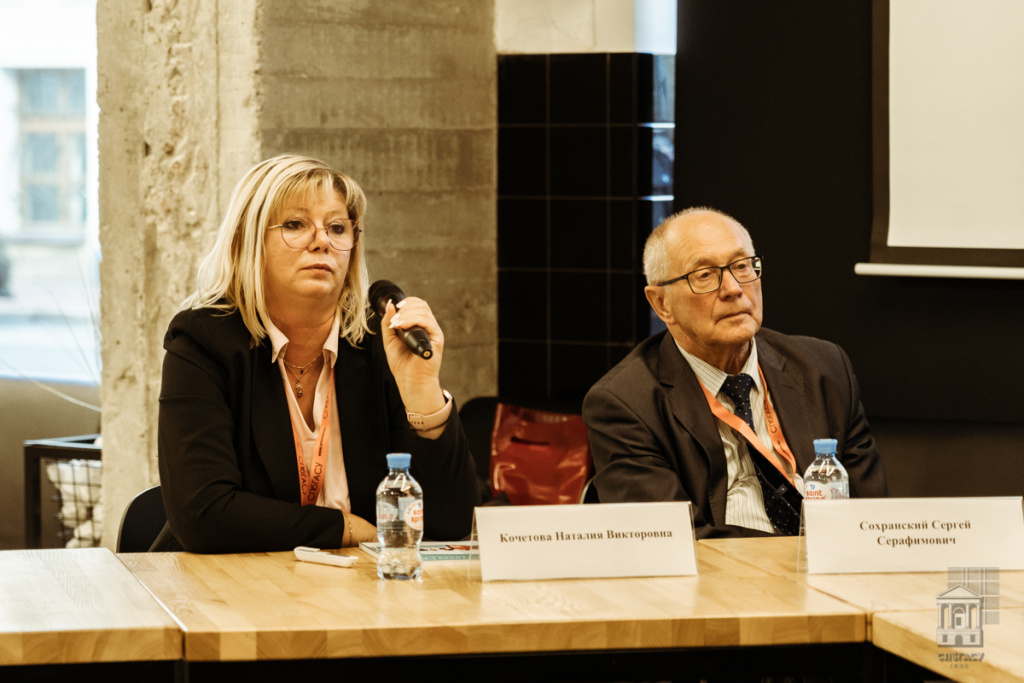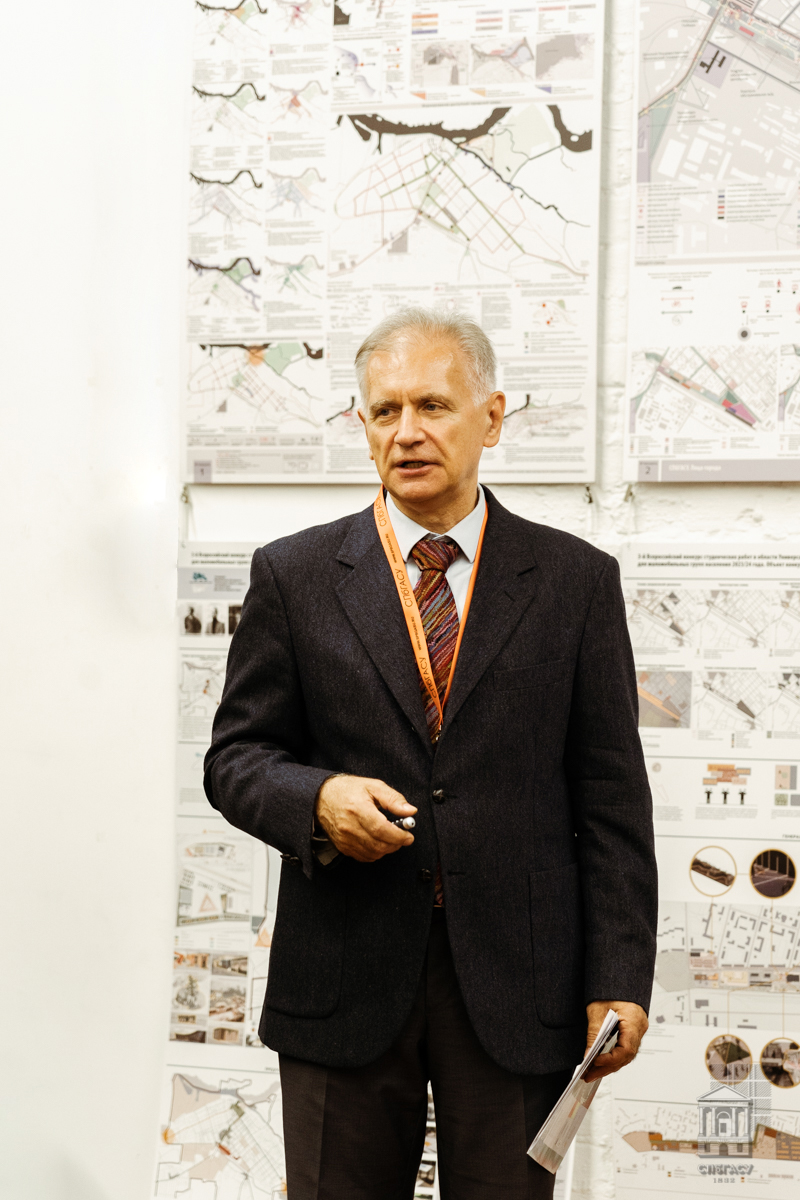 Opening of the exhibition "City in detail. Universal design and planning of barrier-free urban environment"
Opening of the exhibition "City in detail. Universal design and planning of barrier-free urban environment"
On 30 September, SPbGASU has started the Week of Barrier-Free Environment. Future architects and designers had the opportunity to meet with experts and delve deeper into the problems of this topic. The week coordinator is the Educational Center for Project-Based Learning of our university.
The series of events began with the grand opening of the exhibition of design works "City in detail. Universal design and planning of barrier-free urban environment", organized by the Charity foundation "The City Is For All" with the support of the Federal Educational and Methodological Association "Architecture" of the Ministry of Science and Higher Education of the Russian Federation and the Presidential Grants Fund.
 Opening of the exhibition. From left to right: Marina Malyutina, Ekaterina Vozniak, Aleksandra Kuzmina and Oleg Fedorov
Opening of the exhibition. From left to right: Marina Malyutina, Ekaterina Vozniak, Aleksandra Kuzmina and Oleg Fedorov
On behalf of the university management, the guests of the exhibition were welcomed by Marina Malyutina, Vice-Rector for Youth Policy. Marina Viktorovna reported that thanks to the active position of the Faculty of Architecture, departments and the Educational Center for Project-Based Learning, such exhibitions are held at the university on a regular basis. The Vice-Rector also noted the competition successes of SPbGASU students, which, in her opinion, is an indicator of the quality of their training. Marina Viktorovna emphasized that a barrier-free environment is not only a professional topic, it also fosters civic consciousness in the younger generation.
A barrier-free environment is fashionable, stylish, professional, says Ekaterina Vozniak, Dean of the Faculty of Architecture. Addressing the students, Ekaterina Ryurikovna urged them to treat the design of a barrier-free environment not as a formal requirement, but as a pressing need that may arise for everyone.
Aleksandra Kuzmina, Director of the Educational Center of Project-Based Learning, told how the idea of holding the week came about: "Last semester we organized a lecture and an exhibition, which were very successful. We realized that we could aim higher and make a whole week of barrier-free environment."
Sergey Chisty, Chairman of the Board of the Charity foundation "The City Is For All", presented diplomas to the winners of the Third all-Russian competition of student works in the field of universal design and wished them success in mastering the profession. Sergey Vladimirovich also conducted a tour of the exhibition, revealing various aspects and design solutions of universal design.
Another significant event on the first day of the Week of Barrier-Free Environment was a lecture by Ilya Yusupov, head of the Yusupov Architectural Workshop LLC, director of Liteynaya Chast-91 Architectural Bureau LLC. The speaker shared with the audience the problems he had to face in the course of his work and told how they were solved.
The day ended with a roundtable discussion. Experts shared their vision of the situation in the field of barrier-free environment with students. The meeting was moderated by Oleg Fedorov, leading specialist of the Educational Center of Project-Based Learning, member of the board of the St Petersburg Union of Architects. Opening the discussion, he said that the meeting theses would be published in the magazines "Accessible Environment" and "Architectural Petersburg".
 Round table. Natalia Kochetova, Sergey Sokhranskiy
Round table. Natalia Kochetova, Sergey Sokhranskiy
Natalia Kochetova, Director of the Information and Analytical Department of the Russian Association of Sports Facilities, expressed confidence that everyone needs a barrier-free environment. Natalia Viktorovna called for being guided in their work by current documents posted on the official website of the Ministry of Construction and Housing and Public Utilities of the Russian Federation.
Sergey Sokhranskiy, editor-in-chief of the magazine “Accessible Environment,” added that such documents should be included in the list of national standards and codes of practice from Rosstandart.
Architect Ilya Filimonov believes that a number of mistakes are made not even at the design stage, but at the concept stage. At the same time, the same solution cannot be replicated.
Ilya Yusupov spoke about his experience working in the state examination commission and called on students to pay more attention to the section on ensuring access for disabled people and people with limited mobility.

 и слушатели его лекции.jpg)


 и слушатели его лекции.jpg)
